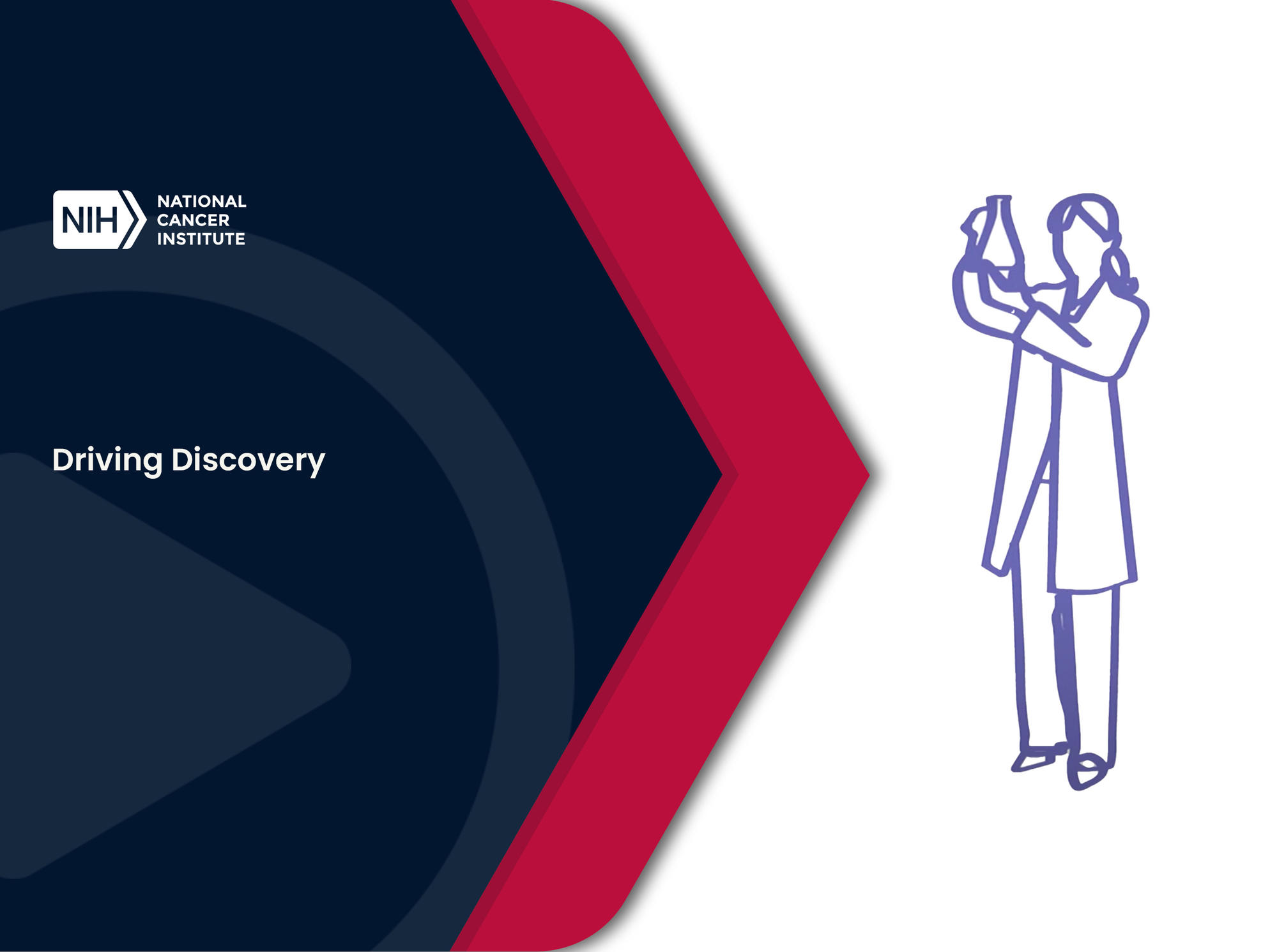Bringing Cancer Research to the Public: NCI’s Networks and Programs
, by Jeff Abrams, M.D., and Warren Kibbe, Ph.D.
We welcome your comments and your participation in a Google Hangout about Bioinformatics on November 10 at 1:30 pm ET. Visit our social media events page for more information.
The following is the third in a series of posts from senior NCI scientists and leaders on NCI’s Annual Plan and Budget Proposal for Fiscal Year 2017, which was submitted to the President on September 17, 2015. The proposal provides an overview of NCI’s priorities and key initiatives and the institute’s funding request for the President to consider in formulating his own Fiscal Year (FY) 2017 budget proposal.
In this third post, Warren Kibbe, Ph.D., director of the NCI Center for Biomedical Informatics and Information Technology, and Jeff Abrams, M.D., acting director for clinical research in NCI’s Division of Cancer Treatment and Diagnosis, discuss NCI’s role in leading the National Cancer Program.
Networks, especially in the cancer field, can mean multiple things. They can be connections between researchers or linkages of highly sophisticated computing equipment.
Whether it’s the independent investigator working late into the night in his lab or a cutting-edge precision medicine clinical trial, many forms of cancer research rely on NCI-supported programs and networks. And these programs and networks must be equipped to respond to changes in knowledge, technology, and policy.
As the FY 2017 Annual Plan and Budget Proposal describes, some of the key components of the infrastructure and programs that comprise the National Cancer Program include:
- sixty-nine NCI-Designated Cancer Centers across the country
- NCI’s National Clinical Trials Network (NCTN) and the NCI Community Oncology Research Program (NCORP)
- NCI-supported programs that are training today’s cancer research workforce and the workforce of the future, and
- a robust bioinformatics network.
Although many of these programs operate behind the scenes, each of these components plays a critical role, providing a solid foundation for progress.
Cancer Centers and Clinical Trials
Earlier this year, the NCI-Designated Cancer Centers Program added its 69th institution, and four other centers were awarded the comprehensive designation.
Many of the NCI-Designated Cancer Centers are home to researchers working in the lab or the clinic—often both—making them an important anchor of the nation's cancer research efforts. And much of the work they do is collaborative, often with researchers at other NCI-Designated Cancer Centers as well as with smaller hospitals and community clinics. Therefore, the continued growth of the Cancer Centers Program is essential to the success of the National Cancer Program.
NCI-Designated Cancer Centers and many community hospitals around the country are also part of the network of institutions that comprise NCI’s two major clinical research programs: NCTN and NCORP.
This network of 2,400 clinical sites covers most of the United States, ensuring that patients, regardless of where they live, have access to trials that are testing the latest in prevention, early detection, treatment, and survivorship care.
NCTN was designed to respond rapidly to new and emerging scientific opportunities. Foremost among those opportunities are precision medicine clinical trials—a new generation of clinical studies focused on developing molecularly targeted and immune-based therapies.
Expanding Access to Data
Sophisticated technologies are allowing the research community to capture more data than ever. The Cancer Genome Atlas and TARGET—a similar program to TCGA focused on pediatric cancers—alone, have produced almost 5 petabytes of data. Expanding access to all of this data will offer myriad possibilities. It will provide new insights into cancer biology, speed the development of better computational and experimental disease models, and directly improve patient care.
That’s why bioinformatics—the information technology used to collect, manage, analyze, and visualize biomedical research data—is a priority for NCI.
Two of the institute’s highest bioinformatics priorities are the NCI Genomic Data Commons (GDC) and the NCI Cancer Genomics Cloud Pilots. These are complementary programs that we believe will go a long way toward expanding access to the data being produced by NCI-supported researchers working in the lab and the clinic.
The GDC will house data from TCGA and TARGET and enable data submissions from individual research groups.
The cloud pilots, comprised of three distinct clouds, will be available in early 2016. Each will provide cloud infrastructure and analytics around the current set of TCGA data, and will allow researchers to analyze TCGA data using computational tools that are incorporated into the cloud or to deploy their own tools and algorithms in the cloud.
The cloud pilots will be a proving ground of sorts, allowing us to learn valuable lessons about the optimal design and functionality of a cloud infrastructure that contains enormous amounts of data.
Fortifying the Researcher Pipeline
Of course, these programs and networks rely on a highly trained workforce to carry out the day-to-day research that is paving the way for progress.
In FY 2014, NCI supported training for more than 3,600 researchers. This support includes programs and grants that provide training for students in high school, college, and graduate school, as well as for clinical fellows and early career scientists.
At NCI, we have training programs in our divisions and centers that span the cancer continuum. They include programs on basic science for high school students in the Center for Cancer Research to programs on epidemiology and biostatistics for postdoctoral clinical fellows in the Division of Cancer Epidemiology and Genetics. NCI funding provides support for similar training programs at cancer centers across the country.
An Unwavering Commitment to Continued Progress
Continued support for the network of programs that serve as the foundation for the National Cancer Program is essential to progress. As we explain in the Annual Plan and Budget Proposal, and as many in the cancer community are aware, with essentially flat budgets over the last decade and the increasing cost of conducting biomedical research, the available research dollars fall short of realizing the full potential of NCI’s investigator community to produce results for patients.
At NCI we are committed to using our resources wisely to support the best science and scientists, and to organize and fund the programs and networks that allow researchers to thrive in their work and achieve progress to the degree possible with our resources.
We want to hear from you about this important subject, and encourage you to use the comments section below to share your thoughts. We also invite you to read the “Driving Discovery” section of the Annual Plan and Budget Proposal, which lays out NCI’s overall programmatic approach and funding justification, and the other posts in this series.
We invite you to tune in to a Google Hangout scheduled for November 10 on NCI’s bioinformatics programs. You can get details on these events on NCI’s social media events page. Finally, be sure to watch NCI’s social media feeds for a forthcoming video on how NCI programs drive discovery in cancer research. It will be a valuable educational tool for anybody with an interest in cancer and cancer research.
NCI FY 2017 Annual Plan & Budget Proposal Upcoming Blog Series
November 5: A Holistic Approach to Reducing Cancer Health Disparities
November 19: Precision Medicine Part I: Understanding Precision Medicine
December 10: Precision Medicine Part II: Clinical Trials for Adults and Children
January 13: Cancer Prevention: The Best Defense

